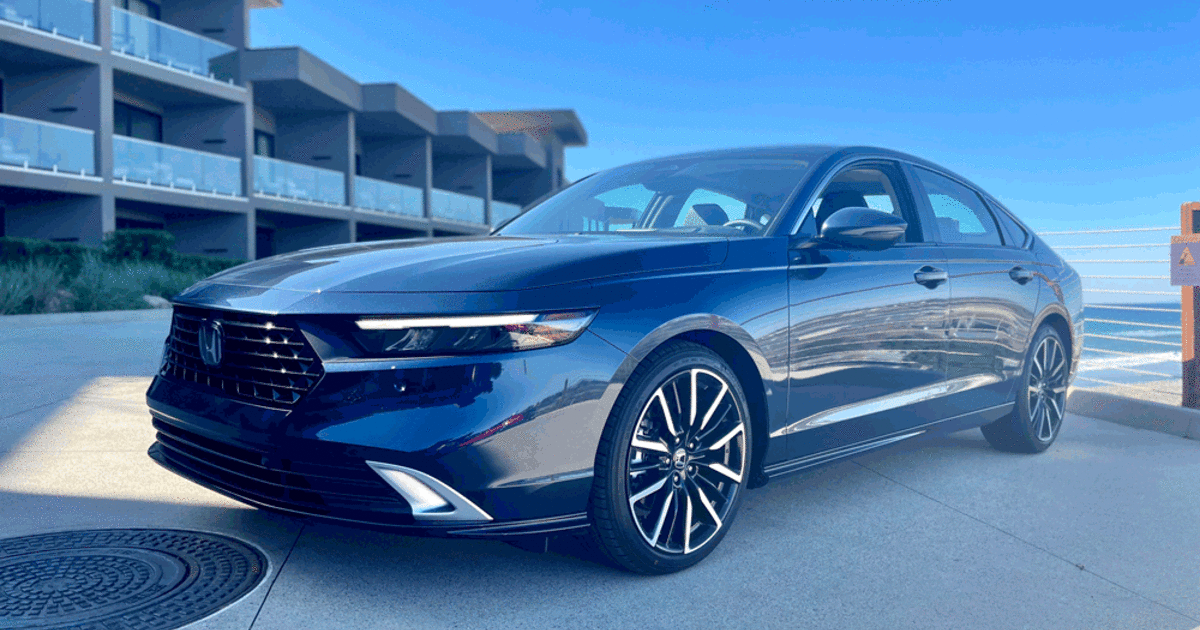
The redesign of Honda’s 11th-generation Accord likely started well before COVID-19 became a global business disruptor, but the sedan’s launch could not be timelier.
Not only will it help boost Honda brand sales back over 1 million in 2023, company officials say, it will also help Honda hold onto would-be EV buyers while it prepares to transition to a more electric lineup.
Honda brand sales barely topped 880,000 last year, down from 1.3 million a year earlier. The automaker says the Accord will be critical in getting it back on track as it eyes a 25 percent sales lift this year.
“We’re on a path to get back towards that larger volume,” Lance Woelfer, assistant vice president of Honda national auto sales told Automotive News. “It’s part of the 20 to 25 percent growth we’ve been communicating to the dealers, so we expect significant growth in the Accord.”
Woelfer declined to confirm a specific figure for the redesigned nameplate, but a 25 percent increase means the Accord could come in around 193,000 sales, up from 154,612 in 2022.
The Accord, a mainstay in the midsize sedan segment, was reimagined for 2023 in a sportier, more tech-forward package. It is counting heavily on hybrid powertrains, with four new hybrid trims that positioned at the top of the Accord lineup.
All hybrid trims use a two-motor system with a 2.0-liter inline four-cylinder engine that delivers 204 hp and 247 pound-feet of torque. The peppy powertrain is also EPA-rated to achieve 44 combined mpg.
The fully loaded Touring model, which features Honda’s first integration of Google Built-In, is affordably priced just below $40,000. Buyers who don’t need all the bells and whistles can snag the Sport for $32,990 (including $1,095 for delivery).
Two trims in between, the EX-L and the Sport-L, cost $34,635 and $34,970, respectively, including delivery.
That range of stickers is notably lower than the $45,184 average transaction price reported by TrueCar at the end of January. It could also help Honda dealers combat the latest obstacle to selling vehicles: rising interest rates, now averaging 6.5 percent, that are pushing monthly car payments above customer budgets.
This puts the Accord in a “hyper-competitive” position, according to Woelfer, who expects hybrid sales to account for 48 to 52 percent of the new Accord’s monthly sales mix.
Honda has taken the same approach with its new sixth-generation CR-V compact crossover, which went on sale last fall. Two well-appointed hybrid trims also lead that lineup, and in January, the hybrid mix landed at 47.6 percent of the total.
On its road to electrification, where Honda brand hopes to sell half a million EVs in North America by 2030, the Accord and CR-V are important EV recruitment tools.
“If you’re purchasing an Accord now, whether you’re leasing or owning, that’s still a good three, five years, seven years down the line,” Honda spokeswoman Jessica Fini told Automotive News. “And hopefully, all the barriers that people are feeling right now, like public charging or installing a charger, will seem less because it’s a little bit farther down the road,”
To sweeten the deal, buyers of the CR-V hybrid who live in one of the 16 ZEV states, can opt into a short-term, two-year lease that will enable them to easily move into Honda’s first electric entry, the Prologue, when it becomes available.
Woelfer said that no such short-lease plan is in the works for Accord buyers, but Honda does want to find ways to optimize brand loyalty as more EV choices come to market.
“We talk a lot about how we capitalize on the consumer and the opportunity that this creates for us to move towards electrified vehicles in the future,” Woelfer said.
“I will tell you that we do see [Accord] as a bridge toward electrification, so we will focus on finding ways to create an opportunity for the customer to transfer to the new vehicle.”